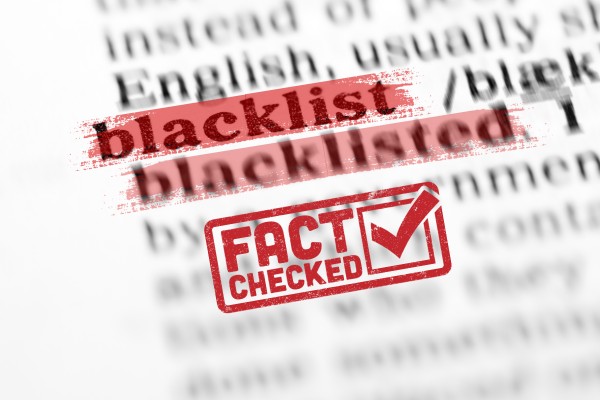
09 Oct Are Credit Blacklists Real? Mortgage Facts You Should Know
When it comes to applying for a mortgage in New Zealand, credit score is one of the most important factors that lenders use to decide whether or not to approve a mortgage application. Determined by credit history, credit score is an indication of how well you manage your finances, and it plays a significant role in lenders’ decision-making process. But what happens when things go wrong and your credit score takes a knock? Is there a credit “blacklist” that’s shared amongst lenders? Get all the essential facts about credit scores, credit history, and how to improve your mortgage application for success.
Debunking the credit blacklist myth
Contrary to popular belief, there is no universal credit blacklist that gets shared amongst lenders in New Zealand. Each lender assesses mortgage applications based on their own individual criteria, and will generally consider a holistic view of your financial situation. That means conducting a thorough examination of your credit history, income, employment stability, and other factors. So, if you’ve had financial setbacks in the past, or had your mortgage application declined by a lender, it doesn’t mean you’re automatically disqualified from getting any NZ mortgages.
The impact of a poor credit score and bad credit history
While there’s certainly no one-size-fits-all blacklist shared amongst lenders, having a poor credit score or a bad credit history can have as adverse an effect as if your details were on a blacklist.
Your credit score is a numerical representation of your creditworthiness, calculated based on factors such as your repayment history, amounts owed, length of credit history, and more. A low credit score indicates to lenders that you may be a financial risk, which could mean you get offered a higher interest rate, or even have your mortgage application declined.
Similarly, a bad credit history, including late repayments, defaults, or bankruptcies, can signal to lenders that you may be unreliable when it comes to repaying your debts. And that can significantly impact your ability to secure a mortgage with favourable terms.
Improving your mortgage application for success
Having a low credit score or bad credit history can make it harder to get a home loan, but that doesn’t mean it’s impossible. By taking a few proactive steps to enhance your creditworthiness, you can improve your chances of mortgage success. Here are some ways to do that:
- Check your credit score: Request a copy of your credit report from credit reporting agencies in New Zealand, and carefully review it for errors or inaccuracies that could be dragging down your score.
- Pay your bills on time: Consistently paying your bills, loans, and credit card balances on time is one of the most effective ways to boost your credit score over time.
- Reduce your debt: Focus on paying down your outstanding debt, with particular attention to high credit card balances or existing loans that can negatively impact your credit score. Consider consolidating your debt to further reduce interest charges and get debt-free sooner.
- Avoid opening new credit accounts: Each time you apply for new credit, it may generate a hard inquiry on your credit report, and that can lower your score. Before applying for a mortgage, avoid unnecessary credit applications.
- Improve your credit history: If you have a limited credit history or a bad credit history but find yourself in need of extra funds, applying for a can be an affordable way to borrow money when you need it. More than just addressing your immediate financial needs, by paying back a personal loan or bad credit loan on time, you demonstrate your ability to manage credit. This responsible financial behaviour plays a crucial role in gradually establishing and building a positive credit history over time.
- Get advice from a mortgage professional: If you’ve had financial challenges in the past, consider speaking to a Mortgage Adviser about your situation and get advice around applying for a mortgage with past credit issues.
Proactively managing your finances
While there’s no credit blacklist shared amongst lenders as such, the impact of a low credit score and bad credit history can be similar to having your name on a blacklist. The good news is, there are ways you can improve your creditworthiness over time, by following a few simple steps to proactively manage your finances.
For more mortgage advice around bad credit history or low credit scores, get in touch with the team of Mortgage Advisers at Max Mortgages. Our team is experienced at helping Kiwis into their own homes and finding solutions for those with bad credit.
Contact a Mortgage Adviser
Find this article helpful? Don’t forget to like it or share it on Facebook.


